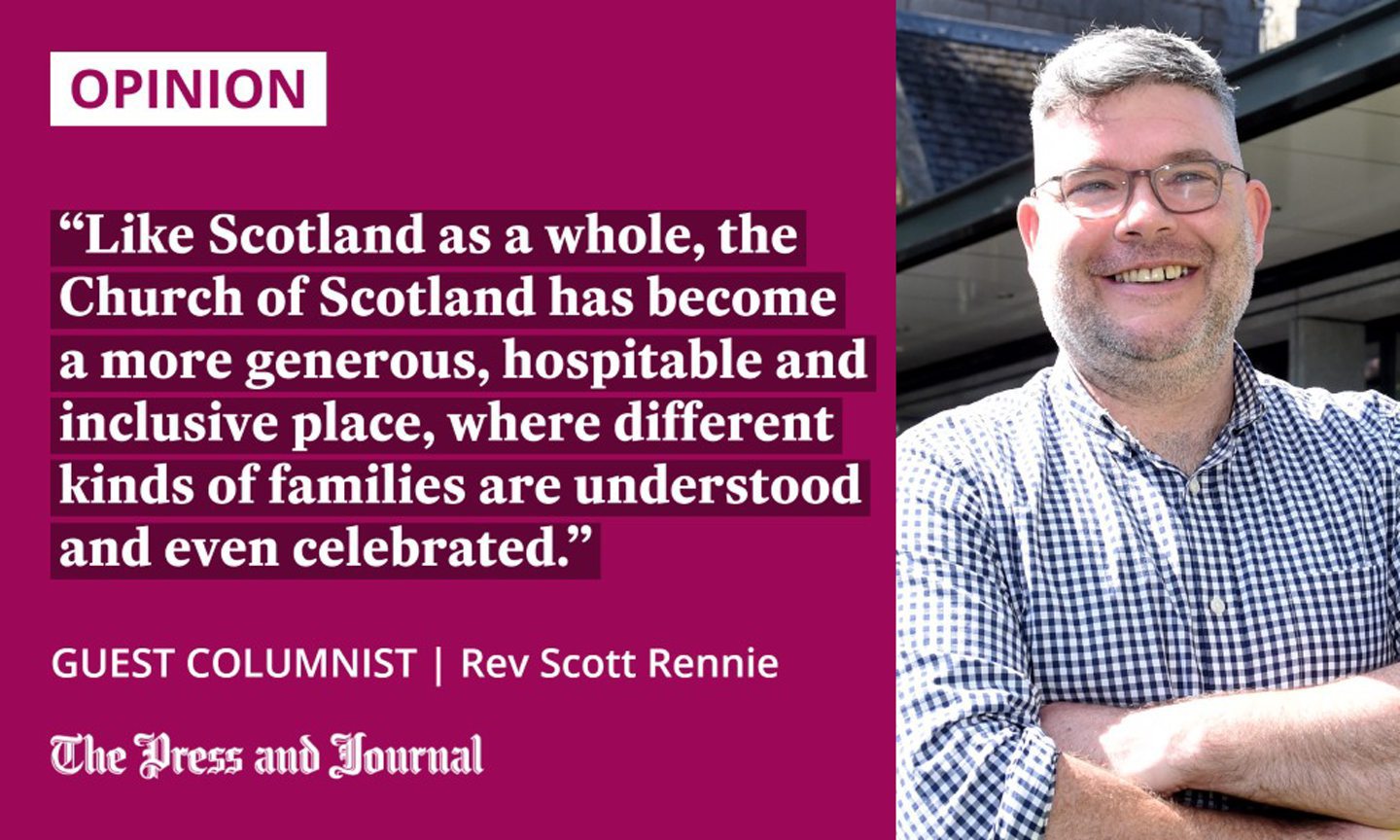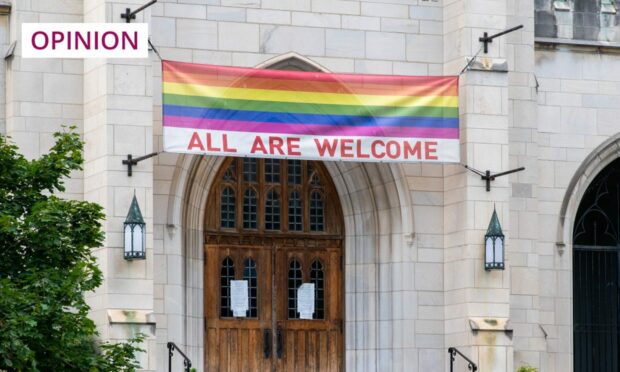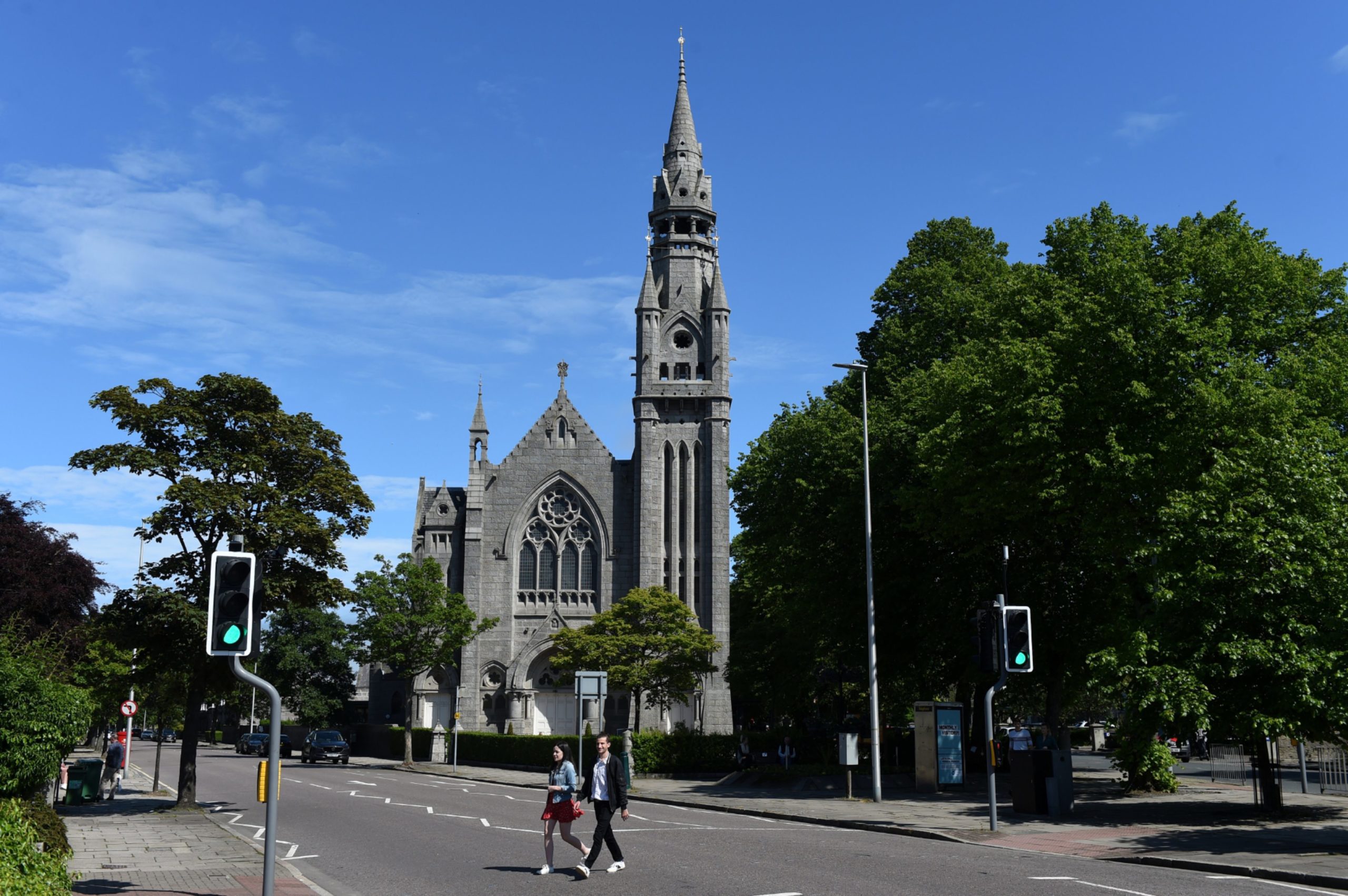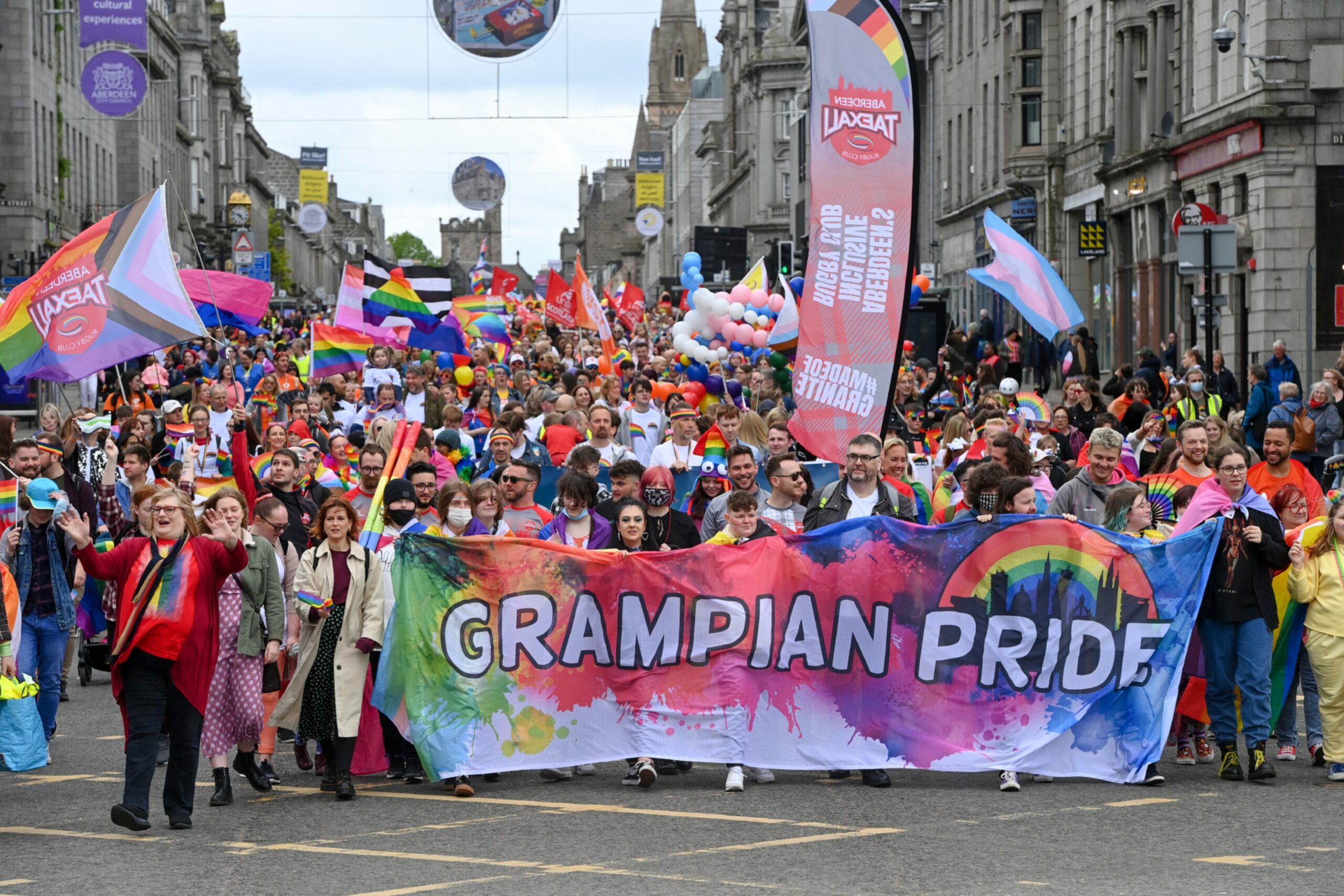Another year and, with the end of May in hand, another General Assembly is past.
The annual gathering of the Church of Scotland’s highest court and decision-making body doesn’t quite bring the headlines it used to in days gone by, but it’s still attended by the first minister and figures from local government across Scotland, as well as the lord high commissioner – HM the Queen’s very own representative. It still matters.
Some years are quiet and, others, not so. If I take my mind back to 2009, when my call to Queen’s Cross Church was in question (at the behest of a few local conservative clerics and others) the mood was anything but serene.

There had always been gay ministers, of course, but none so bold as to publicly be “out” and in a loving relationship. No congregation until then had been more concerned with calling the right person for them, regardless of sexual orientation.
Months of politics and acrimony culminated in a night of high drama and tension, when the Assembly decided my call to Aberdeen should be approved. My induction took place in Queen’s Cross on Thursday July 2, in a packed church, with what felt like half of the moderate clergy of the Kirk in attendance. The rest, as they say, is history.
Scotland has changed – and so has the church
Now, it’s 2022, and I cannot help but reflect on how Scotland has changed. How its national church has also changed.
Thirteen years later, with barely a whimper, the General Assembly decided that, of course, it wished to allow its ministers to conduct same-sex marriages, if they so desired. Not by a small democratic margin, either, but overwhelmingly, by two thirds.
This is a national church which, after years of debate, has come to a mature understanding of scripture and human sexuality, and a church which seeks to remain faithful to its origins, yet also be able to change and mature.
Like Scotland as a whole, the Church of Scotland has become a more generous, hospitable and inclusive place, where different kinds of families are understood and even celebrated – recognising that love is love, and companionship in life is a gift to be cherished by society, whether opposite or same sex.
God made us all exactly as we are
Last weekend, in Aberdeen, Grampian Pride took place, the first in a series of celebrations of the place of the LGBT+ community in towns and cities across Scotland and, indeed, the north of the country.
Along with many more ministers, I look forward to answering ‘I will’ when I am asked to perform a marriage in church, or anywhere else, for that matter, by a couple who happen to be of the same sex
Many more folk, not LGBT+ themselves, but with work colleagues, family and friends who are, joined in the fun and festivities, proclaiming a gentler society and a country more accepting, even welcoming, of diversity.
Along with many more ministers, I look forward to answering “I will” when I am asked to perform a marriage in church, or anywhere else, for that matter, by a couple who happen to be of the same sex.
We will no longer have to turn them away, and they will be able to celebrate their sacred love with their church family, with their loved ones, in the face of a congregation and in the face of the God of love who made them just the way they are.
Ah, there’s hope for the auld Kirk yet.
Reverend Scott M Rennie is minister of Crown Court Church of Scotland in London, formerly of Queen’s Cross Church in Aberdeen



Conversation